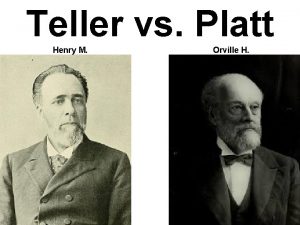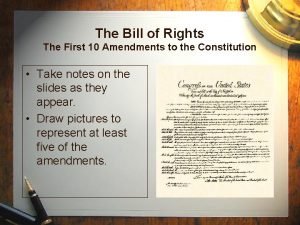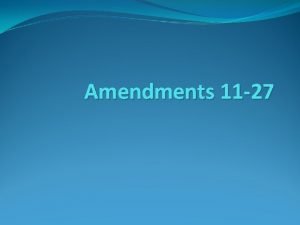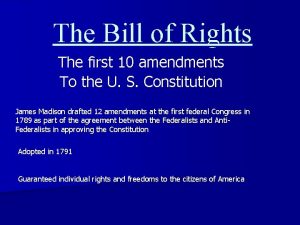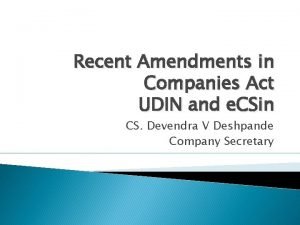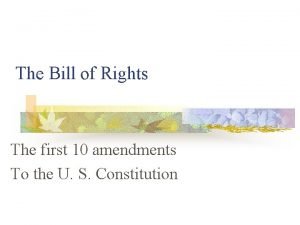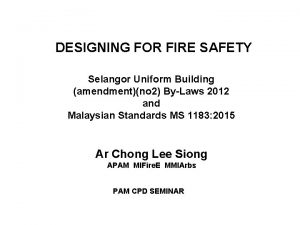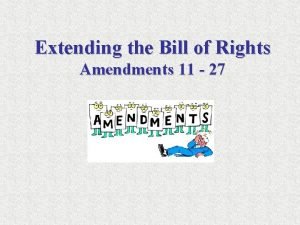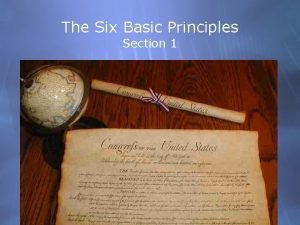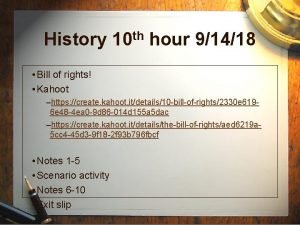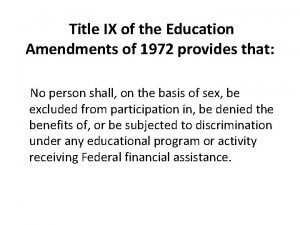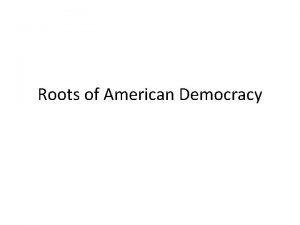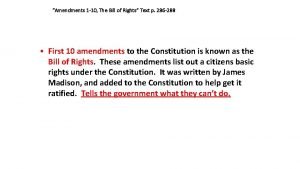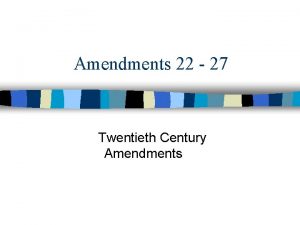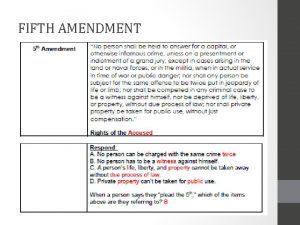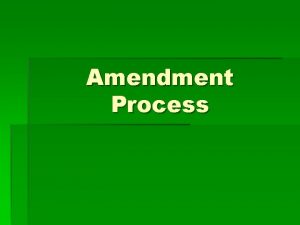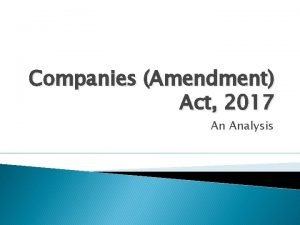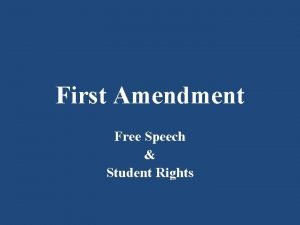Amendments 11 15 19 th Century Amendments Amendment












- Slides: 12

Amendments 11 -15 19 th Century Amendments

Amendment 11 b Lawsuits Against States • Federal courts cannot hear cases where a state is sued by a citizen from another state or a foreign country • Hear cases between states or states and the gov’t of foreign countries.

Amendment 12 b Electing the President and Vice President • Electors meet in their own states • vote for President and Vice President on separate ballots • results sent to the President of Senate, who opens and counts them in joint session • majority of the votes for President becomes President • majority of votes for V President becomes V. President

Amendment 12 b If no majority • President is chosen by House from top 3 – each state gets one vote – 2/3 rds of states must vote – winner must get a majority – if no one gets a majority by Jan. 20, the Vice President serves as President until a new President is chosen • Vice-President is chosen by Senate from top 2 – 2/3 rds must vote – must get a majority of the votes

Civil Rights/War Amendments Part of 19 th Century Amendments 13 -14 -15 Passed as result of Civil War 1865 -1868 -1870

Emancipation Proclamation b 1863 Lincoln passed to end slavery in the Confederacy b Did not affect slavery in other states b Amendment would end slavery in all states and territories.

Amendment 13 b Slavery Abolished • No slavery or involuntary servitude- except as punishment for a crime - shall exist in the United States or any place within its jurisdiction.

Amendment 14 – Section 1 b Civil Rights in the States • Any person born or naturalized in the US is a citizen of both the US and the state where they live. • Ensured that former slaves were full citizens • No state can pass laws to deprive citizens of rights guaranteed by the Constitution without due process of law – used to force school desegregation

Amendment 14 – Section 2 • Entire population of a state is counted for purposes of determining representation in the House of Representatives – made 3/5 ths rule obsolete • If a state denies an eligible citizen the right to vote, the state’s number of representatives will be reduced

Amendment 14 - Section 3 b aimed at former Confederate officials b No one who shall have engaged in insurrection against the U. S. can hold offices in either state of federal governments • exception - 2/3 rds of Congress can vote to override this rule

Amendment 14 - Section 4 b Federal debts • any debts the U. S. had during the Civil War would be paid by the government • Any debts of the former Confederate states would not be paid • Former slave owners would not be paid for losing their slaves b Congress has the power to enforce

Amendment 15 -1870 b The Right to Vote • No citizen can be denied the right to vote based on race, color or previous cond. of servitude - no literacy tests • Congress has the power to enforce – Voting Rights Act of 1965 - gave federal gov’t power to supervise state elections and end unfair practices
 Platt and teller amendments
Platt and teller amendments What are the 10 amendments
What are the 10 amendments 16th amendment simplified
16th amendment simplified First 10 amendments
First 10 amendments Udin login
Udin login Right to bear arms
Right to bear arms Selangor ubbl
Selangor ubbl Amendments 11 27
Amendments 11 27 27 amendments
27 amendments 9th amendment simplified
9th amendment simplified Title ix of the education amendments act of 1972 prohibits
Title ix of the education amendments act of 1972 prohibits 10 amendments bill of rights
10 amendments bill of rights Bill of rights amendments 1 10
Bill of rights amendments 1 10
